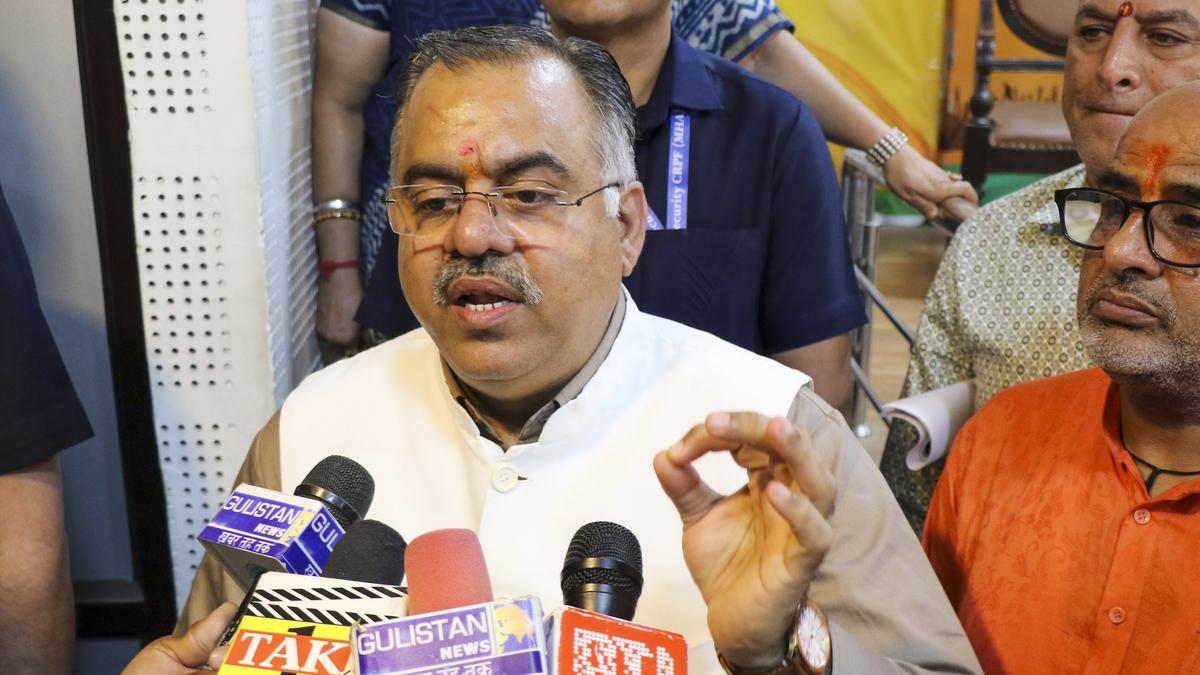Now Reading: Tarun Chugh Accuses TMC of Echoing Pre-Independence Muslim League
-
01
Tarun Chugh Accuses TMC of Echoing Pre-Independence Muslim League
Tarun Chugh Accuses TMC of Echoing Pre-Independence Muslim League

Quick Summary
- BJP national general secretary Tarun Chugh criticized West Bengal Chief Minister Mamata Banerjee for her refusal to implement the Waqf (Amendment) Act in the state.
- Chugh accused Banerjee of misleading people, likening her actions to those of Mohammad Ali Jinnah and naming TMC the “modern Muslim League.”
- He alleged TMC was behind recent communal tensions and claimed Mamata Banerjee was undermining India’s Constitution and federal structure for vote-bank politics.
- Responding to Rahul Gandhi’s critique of the Waqf Act as “anti-Muslim,” Chugh called him a “retarded child” and questioned his stance on providing rights to Pasmanda Muslims versus land mafia interests.
- Chugh targeted congress allies like RJD, accusing them of betraying backward communities by opposing reports like Kaka Kalelkar Commission (1956) and Mandal Commission (1980).
- Alleged that Congress insulted Dr. Ambedkar’s vision, crushed democracy, dismissed governments during its rule, while RJD engages in opportunistic vote-bank politics.
Indian Opinion Analysis
The statements made by Tarun Chugh reflect key political debates around constitutional authority, federalism, minority rights, and social justice. The crux lies in divergent interpretations of laws designed for equitable governance versus claims about misuse or resistance based on political motives.
Mamata Banerjee’s opposition to implementing the Waqf (Amendment) Act underscores tensions between central legislation approved by Parliament and states’ autonomy within India’s federal structure. Such disputes often provoke questions about whether constitutional provisions related to state powers are being upheld or contested due to ideological divides.
Chugh’s sharp comparison linking TMC with pre-Independence Muslim League appears politically loaded but raises concerns over polarizing rhetoric deepening communal lines. Similarly, his comments against Rahul Gandhi broaden criticism towards how governance has historically handled reservations tied to marginalized groups.While making faults explicit is valid democratic discourse; name-calling detracts focus from serious issues raised.
This debate encapsulates broader implications on cooperative federalism-a cornerstone of India’s unity amid its diversity-and political accountability for decisions impacting minorities such as Pasmanda Muslims or Dalits over decades worth systemic disparities behind policy promises vs delivery realities.
neutral governance unaffected elections stakesneeded here long-term community-building fairness across axes.*
























